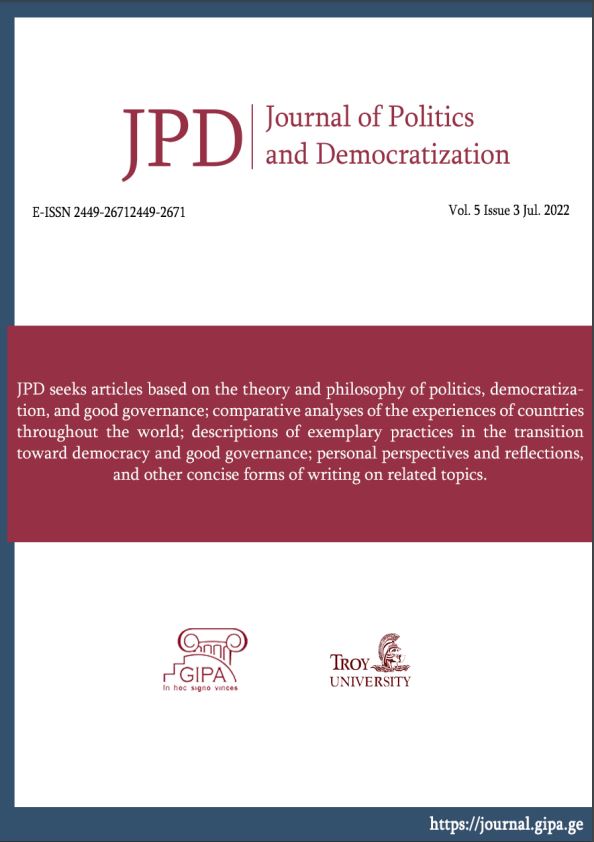The linguistic policy as a non-violent means in the struggle for the autonomy: the case of Catalonia
Main Article Content
ანოტაცია
Ethnic nationalism, which is still a relevant issue in many states, is historically linked with various ethnic groups in many places of the world, including Europe. Most European nationalist groups tend to take after each other, regarding the methods of struggle and goals. Nevertheless, there are certain minorities with their unique approaches to the central government. The Catalan nationalist group in Spain can be pointed out as a good example of such circumstances. It appears that the representatives of the region were mainly oriented on finding the solution to the problems which they faced with the central governments of their state by using the non-violent means, including the language strategy to unite the whole minority. It is also interesting that the representatives of the minority focused on enhancing their autonomy within the Spain rather than separating from the state. Actually, this aspect differentiates the case of Catalonia from the most nationalist tendencies in Europe.
The purpose of this paper is to study the case of Catalonia in Spain and analyze the language strategy as a means of their struggle for compromising the central government of the state. Firstly, the paper shows the essence of the situation carried out in the aforementioned region and the research thesis in the introduction. Furthermore, the focus is on the research methods, conceptualization, operationalization and the relevant literature sources. Afterwards, the detailed analysis of the Catalan nationalism stresses the major aspects of the use of Catalan language as a non-violent method and its link to the struggle for the expanded autonomy by the ethnic group on the territory of the Spanish state. Last but not least, the findings are analyzed in the conclusion.
